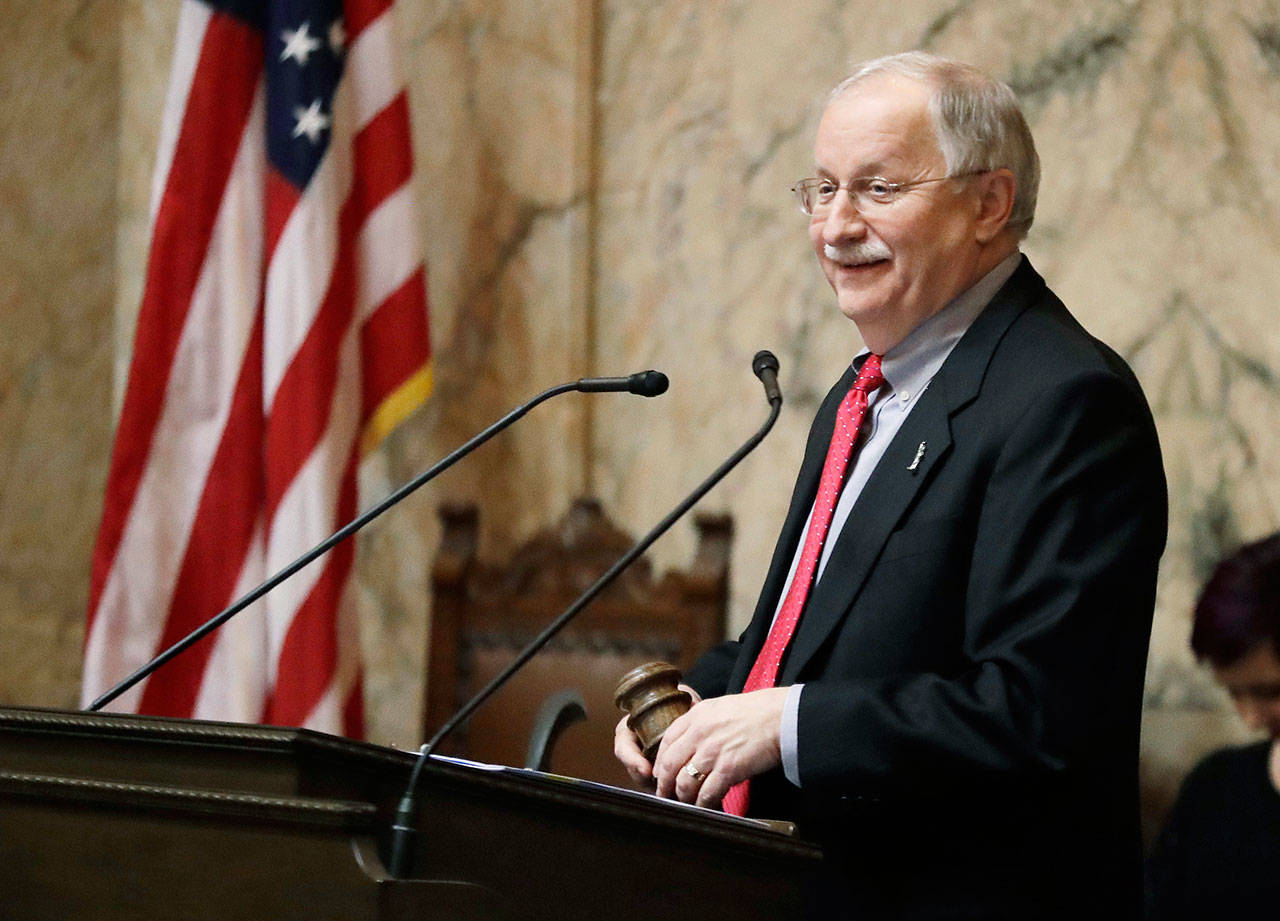A capital gains tax will be on the table during the 2019 Legislative Session, Washington State Speaker of the House Frank Chopp announced at a news conference Wednesday.
“That’s going to be considered,” said Chopp, a 43rd District Democrat and the House speaker since 1999. “You should expect some movement on that.”
With Democrats expanding control of the House and establishing their clearest majority in the Senate since 2010, a tax on profits from property or investment sales appears closer than ever to becoming a reality in Washington, one of nine states that does not have one.
Governor Jay Inslee has supported a levy on investment returns in the past. Last year, he backed a House Democrat proposal for a 7 percent tax on investment income above $25,000 for an individual or $50,000 for a family, in part to address education funding. The plan included a temporary cut to property taxes. It was met with opposition from the Senate Republican caucus.
Democrats have for years sought to change what they call a regressive Washington tax code, arguing it unduly affects lower income people by depending on property and sales taxes.
In 2014, Inslee told the Seattle Times he considered the tax code “grossly unfair” in proposing a similar capital gains plan that did not pass.
Republicans say the tax may slow economic growth; some argue it would violate the state Constitution. Conservative think tank The Freedom Foundation has vowed to sue should it prevail.
Others say that since a capital gains tax would require residents to file an income tax form, it would lead to more taxes in the future.
“It will morph into an income tax,” said Senator Tim Sheldon during a debate in October. Sheldon is a conservative Democrat who caucuses with Republicans.
Chopp, who announced this week that he would be stepping down as speaker following the legislative session, said he anticipates broad support from his party for a new investment tax, particularly if it lessens other tax burdens.
“I think there’s great interest in that,” he said. “A lot of people are concerned about their property taxes.”
The 105-day legislative session begins Jan. 14.



